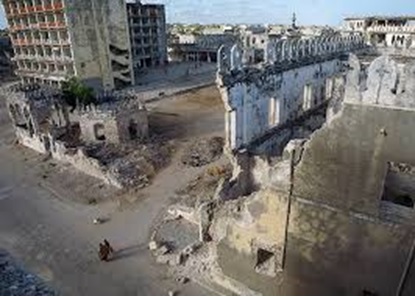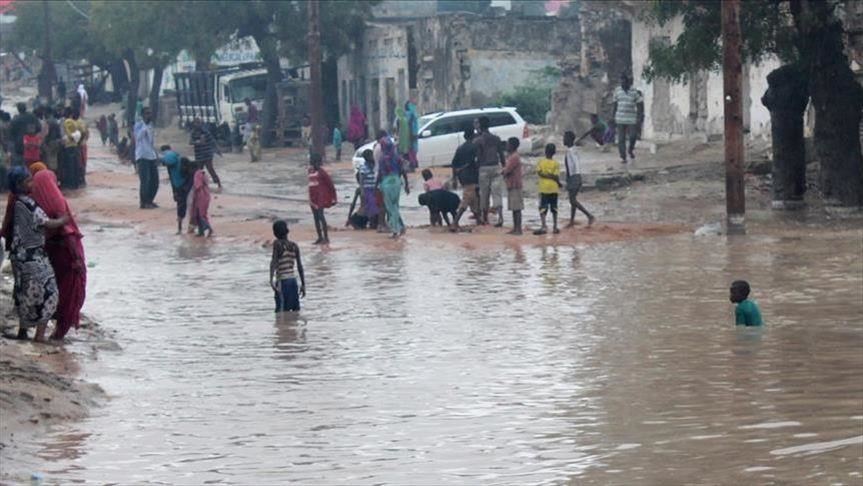By Cigaal Yassin Hassan
Summary
An adequate infrastructure systems is one of the major areas that needs to be given a top priority in any national public policies. This is because in line with sustainable development goals, infrastructure reflects institutional and human capabilities toward restoring economic infrastructure (energy, transport etc); social infrastructure (education, health and housing facilities) with institutional infrastructures such as physical equipment and workforces required to govern national infrastructure systems.

As such its highly significant that the degree for development of public infrastructure for instance, transport systems and the quality of social infrastructures such as education and health facilities resonate the state of social wellbeing.
Background
Back in the 1991 where Somali state institutions have collapsed as the senseless civil war erupted, the political, social and economic upheavals have deteriorated and completely broken down the infrastructures of public services. And in that order, it has also resulted vacuums of socially required fundamental public services as a pre-requisite of sustainable human capital development. Because of that striking effects led by the so called senseless Somali civil war which has totally weakened the hopes of many Somalis, Transition of Somali federal government (TFG) has come to birth in the year of 2000. Despite a tremendous progress that have been made since then by Somali people and Somali TFG government to improve the security and stability of Somalia’s governing system, still Somalia needs to revitalize its infrastructure systems through socially owned models by trickling down sector challenges.
In consideration with government budget constraints and the view of balanced budget policy, the available recent budget document of Somalia mainly concentrates on financing recurrent and operational expenditures which left little so much to development projects and the provision of public services.
A preliminary analyses for Somalia medium term development draft of 2019-2022 under the national development plan 9, estimates that the total spending for infrastructure allocations will rise over time. The allocation of projects with no clarification of project type will rise from $ 48.7 million in 2019 to $84 million in 2022, while the finance allocation of social infrastructures such as education, health and nutrition facilities will rise from $26.4 million in 2019 to $35.8 million in the year of 2022. The largest part of government budget allocations by sector goes on defense and security sector with administration sub-sector which comprises over 69% of total budget allocations. As result there is still a funding gap for development project which the government needs to consider in order to develop adequate infrastructure systems.
Within the context for Somalia’s development agenda, putting different funds in place for development must be an integral part of government medium term strategies. Financing nationwide basic infrastructures such as education and health facilities, roads etc, would need not only the tiny portion of the budget allocations but rather decisive strategies of designing alternative source of sustainable financing options. As such, one source of relevance would be concentrating what is mainly referred as “off the budget expenditure” through the assistance of development partners. In the meantime the federal government of Somalia with its member states must not only rely on national revenues as catalog of tax revenue and non-tax revenue, in addition with the diminutive grants from donors. Therefore to find an alternative financing model would be instrumental at the edge of institutional development agenda.

Unlike the official development assistance (ODA) option or external investment and national debt, Cash Waqaf can be an alternative mode of finance for national development agenda to fill the funding gaps of highly prioritized sectors. Reasonably cash waqaf funds can be collected from the national citizens and purposefully distribute toward social benefits for a relatively low cost of capital.
To be short in view for the cash waqaf arguments, national debt hinders government ability to deliver required type of services by compensation of debt services, while the foreign capital investment will also need all the profits of the local economic activities to be channeled to capital owners. Hence this article suggests Cash waqaf as an alternative financing option for Somalia’s development funding gaps as it historically supports social and economic development of the country.
Cash waqaf
According to the arguments of different Islamic jurisprudents, Cash Waqaf is about the money raised in a formal way and channeled it to invest productive sector programs, then the return of investment is supplemented to the cost of social services such as health, education and so forth. Apart from this definition, waqaf is expected to provide wider benefits to societies in a sustainable manner. It’s also apparent that the main objective of waqaf is not only to collect asset donations but rather to use waqaf assets as an alternative source of fund to meet social benefits of Muslim communities, as it has been a tool of Islamic philanthropy. Most of the waqaf models emerged during the Islamic period, such as during the Ottoman Islamic Empire where the basic social services were financed through waqaf based initiatives.
In practical aspect, the role of cash waqaf for funding economic development projects can be introverted in different models used by the world developing countries, for example a small South East Asian country Singapore approximately over 170,000 Muslim workers deduct their monthly income for about $2-$11 each month through employee provident mechanism. As a result this small contribution manages to collect over $6 million each year, so that there is an applicable funding mechanisms for social services and a part of that it has resulted the rise of waqaf institutions in Singapore.
In the Muslim world countries such as Indonesia, Kuwait and non-Muslim countries such as UK, all have had introduced different models of cash waqaf to finance basic social infrastructures such as health, sanitation, clean water, education and housing facilities. In comparison with other countries Indonesia should become the pilot country for the management of cash waqaf as it has gained so much when it comes to financing social infrastructure using cash waqaf model. This model is not widely known by many as it has an enormous potential and provides promising opportunities for not only infrastructure development but also wider national development projects.
How it works
For example, a person, a company, a voluntary organization or a community-sponsored organization can set up and raise cash-donations from voluntary donors and then invest in lucrative businesses or productive opportunities that can produce high returns. Through Sharia based financing contracts, the management institution (cash waqaf fund) allocates the said return to finance any development related programs such as poverty reduction, education and health programs. In line with the principle of Islamic socio-economic effects, there is an indication that the source of funds among the community (waqaf resource) can be utilized as an efficient and effective manner.
Ironically this untapped opportunity provides a long lasting solution to Somalia steadfast need for tackling socio-economic challenges, particularly to find an adequate resource of financing public services. To be transparent and accountable by order, this initiative can be implemented following the traditional financing mechanisms and processes such as to issue public shares and ultimately provide waqaf certificate to any contributor.
Cigaal Yassin Hassan
Email: [email protected]
———-
Cigaal Yassin is a PhD candidate for Health Economics at University Putra Malaysia (UPM), Researcher and Takaful insurance practitioner. Currently, he is the Vice Rector in charge of academics at University of Health sciences Somalia.
We welcome the submission of all articles for possible publication on WardheerNews.com. WardheerNews will only consider articles sent exclusively. Please email your article today . Opinions expressed in this article are those of the author and do not necessarily reflect the views of WardheerNews.
WardheerNew’s tolerance platform is engaging with diversity of opinion, political ideology and self-expression. Tolerance is a necessary ingredient for creativity and civility.Tolerance fuels tenacity and audacity.
WardheerNews waxay tixgelin gaara siinaysaa maqaaladaha sida gaarka ah loogu soo diro ee aan lagu daabicin goobo kale. Maqaalkani wuxuu ka turjumayaa aragtida Qoraaga loomana fasiran karo tan WardheerNews.
Copyright © 2024 WardheerNews, All rights reserved


